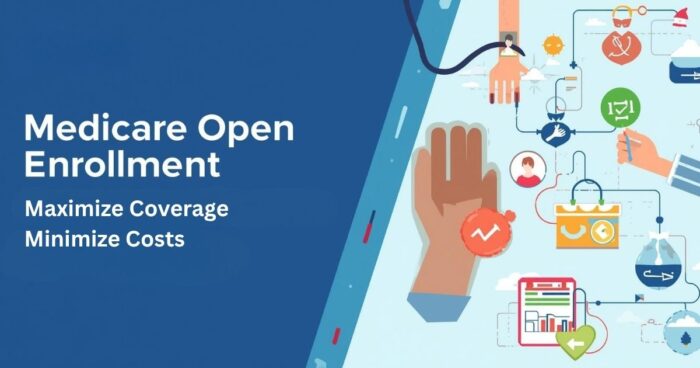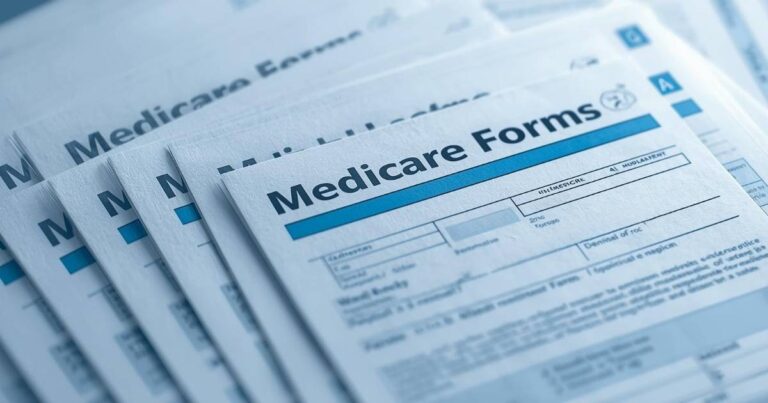Medicare Open Enrollment is your annual opportunity to take control of your healthcare costs and coverage. But with so many options and complex details, it can feel overwhelming to navigate.
You’re not just choosing a plan; you’re making a decision that affects your health, finances, and peace of mind for the entire year ahead. What if you could confidently cut costs without sacrificing the quality of your care? The key is a strategic approach.

Let’s break down the essential steps you can take to minimize your expenses and maximize your benefits during this critical period.
Medicare Open Enrollment is Oct 15 to Dec 7
For 2026 healthcare coverage, Medicare’s annual Open Enrollment period runs from October 15 to December 7, 2025. Coverage will begin on January 1, 2026.
During Medicare Open Enrollment, people can:
- Switch from Original Medicare to a Medicare Advantage plan
- Change from Medicare Advantage to Original Medicare
- Select a different Medicare Advantage plan
- Choose a different Medicare prescription drug plan
Changes made during Open Enrollment will take effect on January 1, 2026. And after December 7th, no further changes to Medicare coverage can be made for 2026 (unless a special enrollment period applies to your situation).
We explain why reviewing and making changes to your older adult’s medical and prescription plans can help them save money and improve next year’s coverage.
We also share how to know which plan changes to focus on, how to compare 4 key areas of coverage, and four ways to get help with Medicare decisions.
Why Do Seniors Need to Make Changes to Their Medicare Plans?
Medicare health and drug plans can change each year: costs, coverage, and which providers and pharmacies are in-network.
That means the plan that covered everything your older adult needed this year might not have the same coverage next year.
This is especially true for Part D prescription drug plans.
When plans change, this could lead to significant increases in next year’s healthcare costs.
However, changing to a different plan can provide the coverage your loved one needs without increasing their premium or out-of-pocket costs.
And, there’s always the chance that a plan with a lower premium could provide the coverage they need.
VIDEO: Everything You Need to Know About Medicare Open Enrollment
The Annual Notice of Change Letter Highlights Significant Changes
To find out what’s changing in your older adult’s current Medicare plans, look for the Annual Notice of Change (ANOC) letter.
The ANOC is a helpful summary that highlights any changes in coverage, costs, or service areas that will take effect in January.
Medicare plans send their ANOC letters in early October and Medicare Advantage plans typically send theirs in September.
Compare These Four Important Areas of Medicare Coverage
1. Premiums
Is the plan’s premium going up? If the increase is significant, there may be an alternative plan that offers similar coverage at a lower price.
2. Deductibles and co-pays
What are the current deductibles and co-pays? Will these be increasing next year?
3. Prescription drug coverage
Medications that are not covered can be expensive. Paying special attention to prescription drug plans can save a significant amount of money.
It’s time-consuming but necessary to determine how changes in drug plan premiums, formulary, and pricing tiers will affect the cost of the medications your older adult takes.
Typically, a plan could raise premiums, add or remove drugs from its formulary, change pricing, or move drugs from one price tier to another.
Look up each of your loved ones’ medications so you’ll know:
- If it’s covered in the plan’s formulary
- Which pricing tier are the medicines in
- How much the drugs in that tier will cost
It’s also important to know whether your older adult’s preferred pharmacy is in the plan’s network (prices are lowest in-network) and whether there are any restrictions, such as prior authorization or being forced to try a specific drug first.
Estimating those costs and accounting for restrictions gives you a clear picture of which plan provides the most cost-effective prescription drug coverage.
Note: A plan’s formulary is the list of covered medications. Most prescription drug plans have five pricing tiers: preferred generics, other generics, preferred branded drugs, other branded drugs, and expensive specialty medications. Each tier has a different cost.
4. Part C / Medicare Advantage / Managed Care
If your older adult has a Medicare Advantage plan, call their current doctors, hospitals, specialists, and other providers to make sure they’ll still be in the plan’s provider network in 2024.
4 ways to get help with Medicare Open Enrollment
Comparing Medicare plan options can be overwhelming. Get additional help and information from these four reputable sources.
1. Contact Your Local SHIP Office
Getting expert advice can save hours of your time. The State Health Insurance Assistance Programs (SHIPs) give free, in-depth, one-on-one insurance counseling and help.
A counselor who understands Medicare and Medicaid can guide you to innovative options for your loved one’s personal situation.
You can trust them because SHIPs are government programs funded by the federal U.S. Department of Health and Human Services.
Find your state’s SHIP office >
2. Contact Your Local Area Agency on Aging
Call the local Area Agency on Aging and ask if they have programs that help with Medicare Open Enrollment.
Find your local Area Agency on Aging >
3. Use Medicare’s Online Plan Finder
Medicare has an online plan finder and comparison tool. Answer a few quick questions, and the tool will show available plan options for 2024.
Use Medicare’s online plan finder >
Note: There is a separate Medigap Policy plan finder
4. Call 1-800-MEDICARE (1-800-633-4227)
You can also call the Medicare office and ask a representative to run a search for plan options, which they will then mail to you. This requires additional time, so please call ASAP if you would like to use this method.
Final Thoughts on Medicare Open Enrollment
Your healthcare coverage is too essential to leave to chance. By taking these proactive steps during Open Enrollment, you’re not just reviewing paperwork—you’re making a powerful investment in your well-being and financial security for the year ahead.
Remember, the perfect plan is the one that aligns with your unique health needs and budget, ensuring you get the care you deserve without unnecessary stress or surprise costs. Don’t let this window of opportunity close; a little time spent now can lead to significant savings and priceless peace of mind.
Recommended for you:
- Medicare vs. Medicaid: What You Need to Know
- What Does Medicare Cover? Find Out Before the Bills Arrive
- 3 Mistakes That Cost Medicare Beneficiaries a Fortune
About the Author

Connie is the founder of DailyCaring.com and was a hands-on caregiver for her grandmother for 20 years. (Grandma made it to 101 years old!) She knows how challenging, overwhelming, and all-consuming caring for an older adult can be. She also understands the importance of support, especially in the form of practical solutions, valuable resources, and self-care tips.












